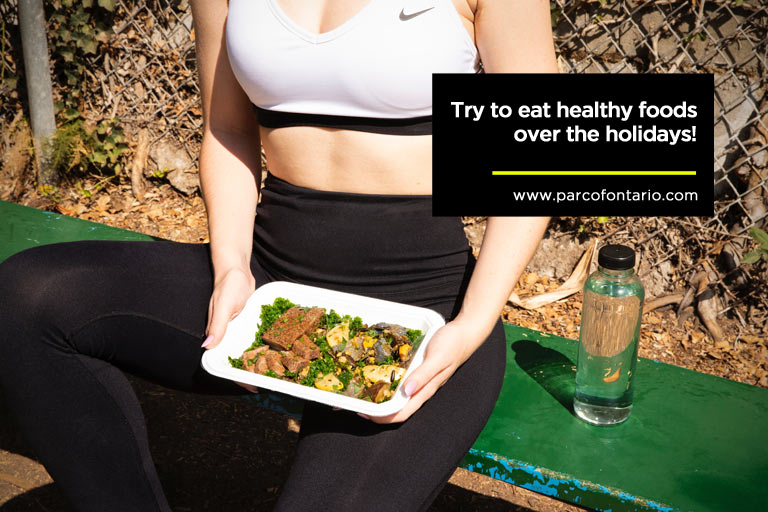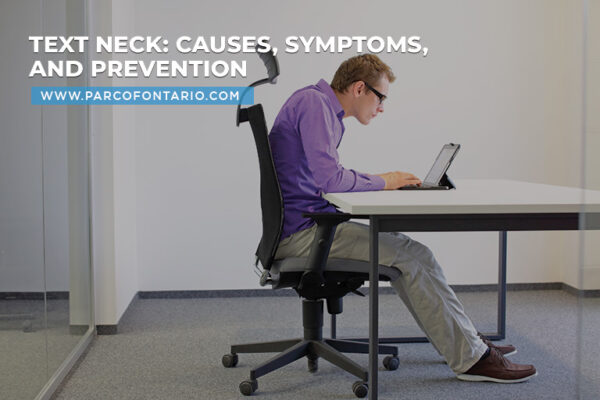
Text Neck: Causes, Symptoms, and Prevention
Many of us spend long hours hunching over our electronic mobile devices and laptops. As we spend more time texting, browsing social media, and reading on our devices, this constant downward gaze…
Read More
The purpose of sports nutrition is to combine the expertise of a dietician with the knowledge of an exercise physiologist. Consulting with a sports nutritionist can be important whether you’re a competitive athlete or simply someone who loves to exercise. There’s a big demand for specialization among these professionals because of the area’s complexity. Some sports nutrition experts specialize in one sport, specifically.
Part of sports nutritionists’ expertise is they understand the basics of nutrient metabolism, psychology, exercise physiology, and the way people use energy in various activities.
Our energy levels are impacted by:
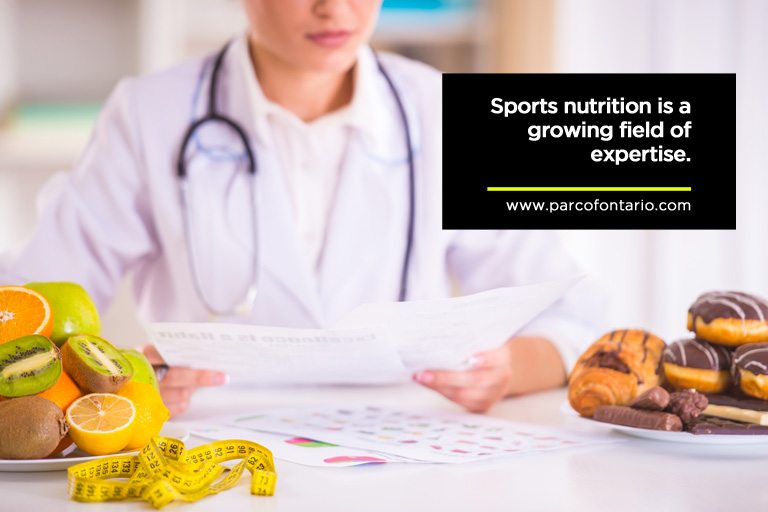
Benefits of a Healthy Diet
There are immense short-term and long-term benefits to eating a healthy, well-balanced diet. It strengthens your immune system; you’ll get sick less often and recover more quickly when you do become ill. A great eating plan provides you with a boost of energy, decreases your chances of getting injured, and helps your muscles to heal more quickly when you do get hurt. You’ll also feel less soreness in your muscles in response to strenuous exercise. Finally, it allows you to concentrate in a more more focused way, so your mind is much more efficient.
A quality diet is particularly crucial for children and young people because they need the nutrients to properly develop (both physically and mentally). It also helps prevent them from being injured. They need to be eating foods that are rich in nutrients, vitamins and minerals — and low in unsaturated fats. Examples of “good fats” include olive oil, nuts, and avocado. It’s best to avoid sugars, extra salt, and foods high in saturated fat. Here are a lot of other great snack ideas for for the child athlete.
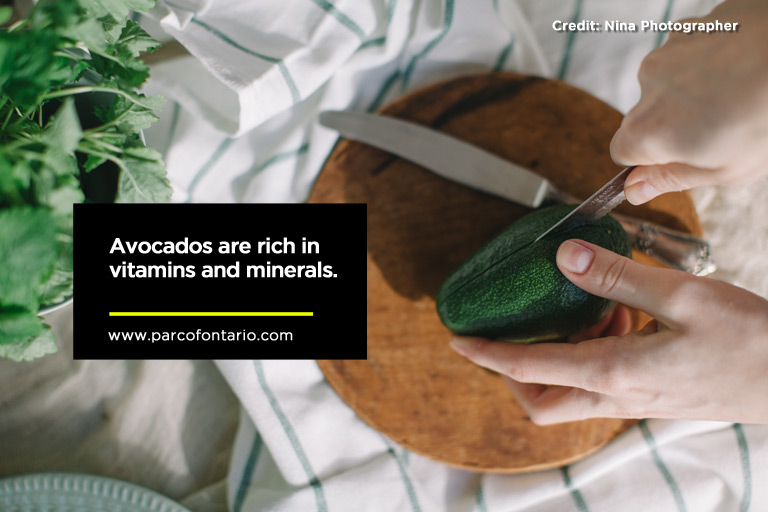
[overlay:] Avocados are rich in vitamins and minerals.
Credit: Nina Photographer
Eating before Exercise
When you are planning to exercise, it’s important to eat beforehand. Failing to eat before you work out is not a good idea, as you may end up nauseous and/or dizzy. The body needs complex carbohydrates to provide energy for exercise, and carbs break down into glucose once they’re inside the body. They travel to the muscle cells and create the fuel you need to expend extra energy. If you eat carbs about an hour before your workout, you’ll have glucose available to fuel you during your exercise time. Without that boost of energy, you may feel tired, unmotivated, and find it harder to get out of the house. Examples of good carbohydrate snacks to have before your workout include dried fruit, a granola bar, oatmeal, or crackers.
It’s also a good idea to have a protein snack about an hour before your workout, particularly if you plan to do muscle-building exercises. Protein helps the muscles develop and grow. If you are about to work out, try not to consume heavy proteins like meat. Have a small protein treat that’s easy on the stomach like nuts, Greek yogurt, a glass of milk, or a boiled egg.
Eating After Exercise
Eating after you exercise is a must, because you want to keep your blood sugar stable. It’s also important to help your muscles recover from the workout, and to replace the calories, electrolytes, and glycogen that you lost during the workout. Eat a snack about 15-60 minutes after your physical activity. Following that, wait approximately two hours and then eat a proper meal. Once again, try to consume protein alongside complex carbohydrates. Serious athletes will need to consume more protein.
Stay Hydrated
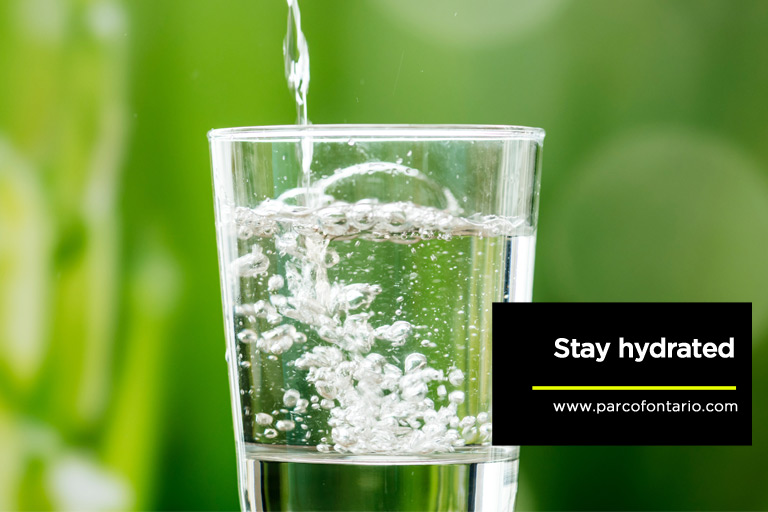
Overlay: Stay hydrated
Staying hydrated refers to drinking water, milk, and 100% fruit juice as your only beverages, since they are the only drinks that will properly hydrate the body. Naturally, it’s important to drink a lot of water; your goal should be to consume about 64-80 ounces of water throughout the course of the day. Try to drink two to three glasses of skim or lowfat milk every day in addition to the. Drink fruit juice, but not more than 4-6 ounces on a daily basis because of the high sugar content. If you’re going to be exercising for more than an hour, it’s fine to consume sports drinks.
Snacks for an Energy Boost
Here are some great examples of high complex carb, high protein snacks to eat before or after a workout. Here are some other surprisingly healthy snacks to have before you exercise.
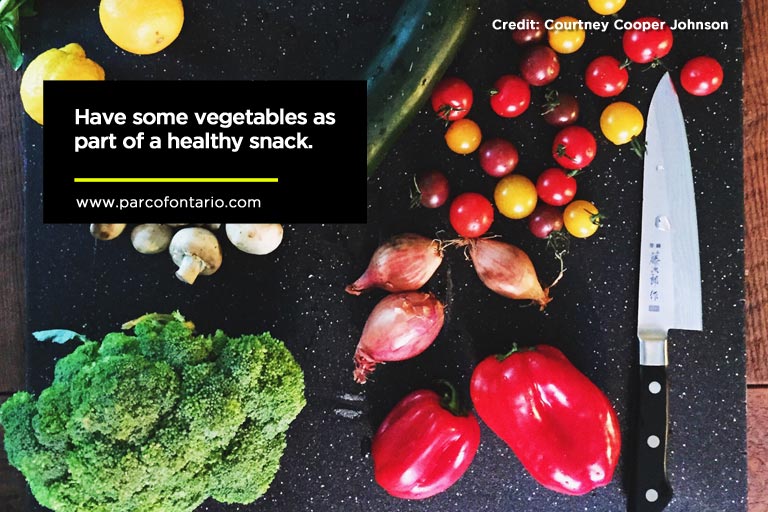
Credit: Courtney Cooper Johnson
Here are some suggestions for your post-workout meal:
Sports Nutrition Myths and Facts
There are a few widely-accepted ideas about sports nutrition that are completely false. For some reason, there’s a lot of incorrect information about this area; such falsehoods can lead people to make incorrect assumptions. For example:
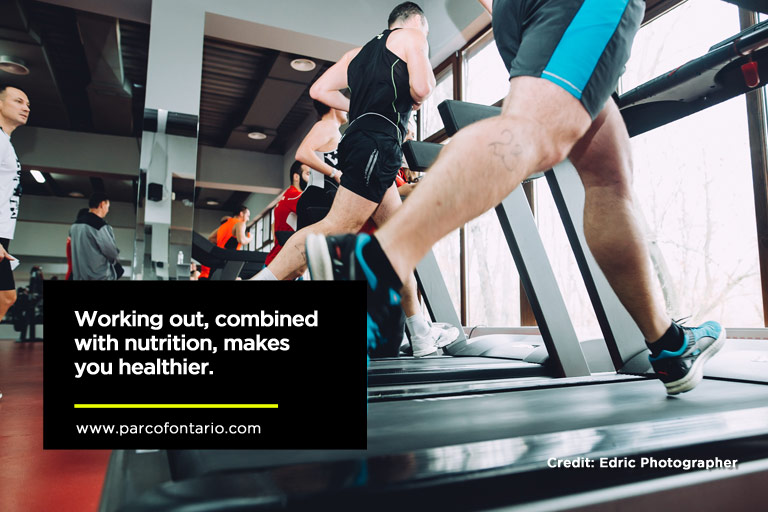
[overlay:] Working out, combined with nutrition, makes you healthier.
Credit: Edric Photographer
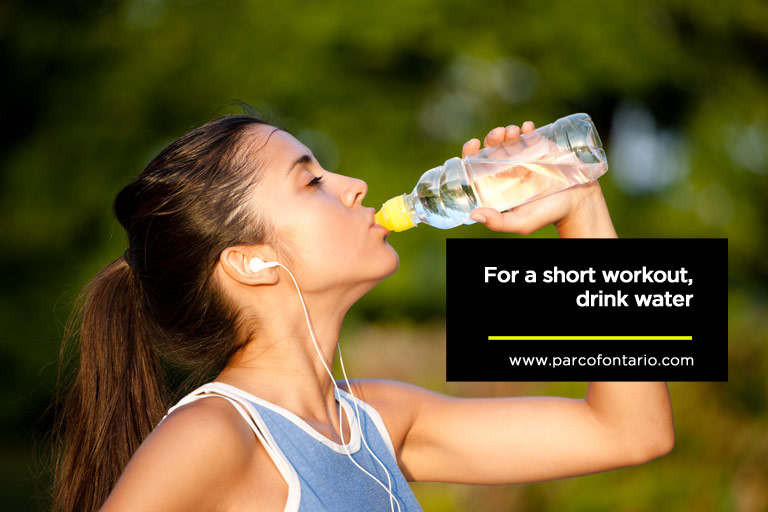
Credit: Una Shimpraga
We hope this information will help you keep up or improve healthy eating habits. Take your fitness level and type of physical activity into account when you plan meals.
Make an appointment with one of our nutrition experts at The Physiotherapy and Rehabilitation Centres of Ontario. You may benefit from a series of sessions to explore your eating habits and physical activity. We can come up with a plan that is tailored specifically to you. Check out our complete list of services available in Ajax, Whitby, Scarborough and Mississauga. Give us a call in:
Ajax: (905) 686-9081
Whitby: (905) 430-2112
Scarborough: (416) 445-2075
Mississauga: (905) 897-2092
Since the holidays are just around the corner, it may be a good idea to review some Mindful Eating Strategies, or tips for a Low-Fat Holiday Season. Get started on better health for the new year!
